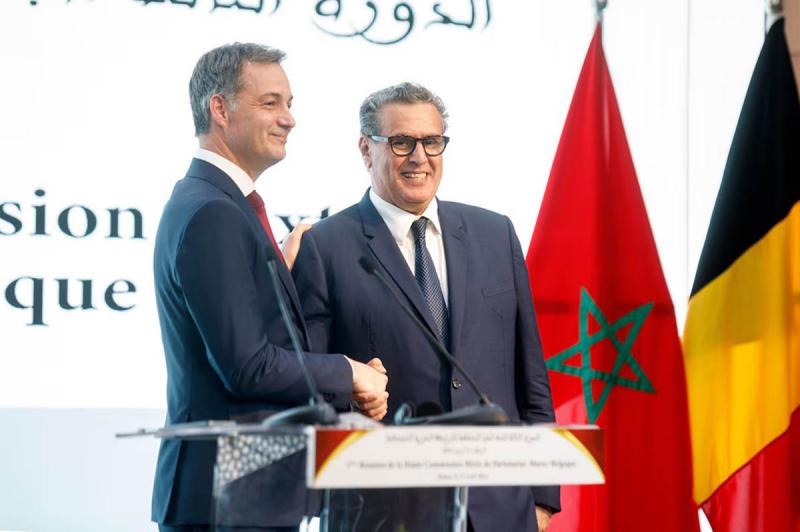Belgium and Morocco have taken a major step to strengthen their diplomatic and migration ties. Both countries signed a new bilateral agreement that allows Belgium to return more irregular migrants with criminal records to Morocco, while Belgium has officially endorsed Morocco’s autonomy plan for Western Sahara.
This development follows the approach of countries like France, Germany, the United States, and the European Union, which have all backed Morocco’s plan. The agreement marks a fresh effort to fix one of Belgium’s biggest challenges in its asylum policy — sending back people staying illegally after serving prison sentences.
According to reports by De Tijd, about three out of ten inmates in Belgian prisons are undocumented migrants. Despite government efforts to reduce this number, progress has been slow. In the first six months of this year, Belgium’s Immigration Office managed to repatriate just 717 convicted offenders, mainly to Morocco (147), Albania (115), and Algeria (73).
With the new deal, Morocco has agreed to take back more of its nationals who are living illegally in Belgium. In return, Belgium will offer full diplomatic support for Morocco’s plan to give limited autonomy to Western Sahara, a disputed region that has been the centre of global debate for nearly fifty years.
The announcement was made in Brussels after a meeting between Belgian Foreign Minister Maxime Prévot and his Moroccan counterpart Nasser Bourita. Prévot confirmed that Belgium’s support for Morocco’s proposal is now official, ending years of cautious alignment and bringing the country in line with major Western powers.
Morocco’s autonomy proposal outlines the creation of a Sahara Autonomous Region with its own parliament and government, while the central Moroccan government would still handle defence, justice, and foreign policy. The plan aims to give local Sahrawi people more control over their own affairs while keeping the region under Moroccan sovereignty.
Historically, Western Sahara was a Spanish territory known as Spanish Sahara until 1975, when Spain withdrew. Since then, Morocco has controlled most of the region and refers to it as its southern provinces. However, not all countries recognize Morocco’s claim.
Opposing Morocco is the Polisario Front, a movement backed by Algeria that seeks full independence for the Sahrawi people. The Polisario declared the Sahrawi Arab Democratic Republic (SADR) in 1976, which has been recognized by several countries but is not part of the United Nations.
The United Nations continues to list Western Sahara as a non-self-governing territory, while peace efforts have failed to end the decades-long conflict. The war between Morocco and the Polisario Front has already claimed an estimated 9,000 lives in the past sixteen years, making it one of Africa’s longest-running territorial disputes.
Experts believe this new cooperation between Belgium and Morocco could strengthen migration management and diplomatic relations between the two nations, while also shaping Europe’s broader policy on migration and regional stability.

